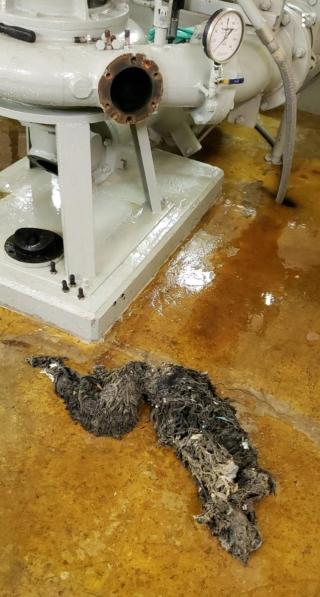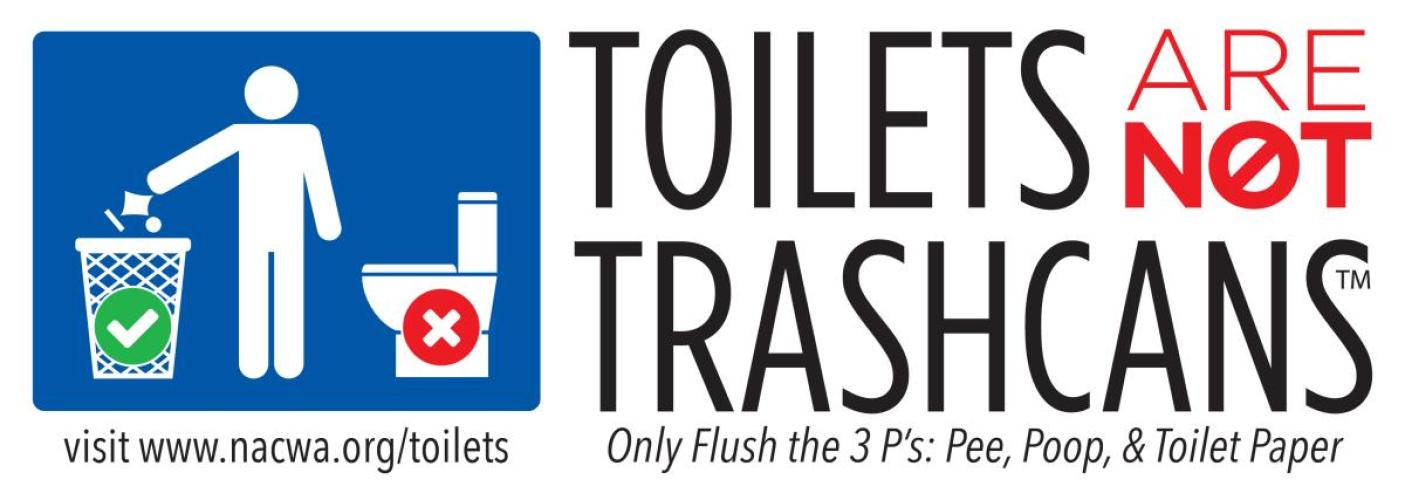Nonflushables

Toilets are not trash cans. Just because something can physically be flushed down a toilet or is described as “flushable”, does not mean that it should be flushed. The only thing that should be flushed down the toilet are human waste and toilet paper.
Why are nonflushable items a problem?
Every day, District staff find items at the water reclamation facility and in the sanitary sewer collection system that should not be there.
Improper disposal of nonflushable items, such as wipes, dental floss, diapers, paper towels, cat litter and waste, and feminine hygiene products, can result in expensive sewer backups in your home or business. Nonflushable items can also cause problems in the sanitary sewer collection system by blocking sewer pipes, damaging pumps, and require extra cleaning, all which result in higher costs to the users of the system.
Household Hazardous Waste
Hazardous household waste, such as antifreeze, pesticides, fertilizers, used oil, and cleaning products, can pollute the environment and pose a threat to human health. Certain types of household hazardous waste could even cause physical injury to District employees and contaminate the water reclamation facility if disposed of improperly. Residents and businesses can take unwanted products to local community collection points, which will send the waste for proper treatment and disposal. For more information, please visit https://www.co.walworth.wi.us/342/Hazardous-Waste-Recycling.
Medication Disposal
Unwanted and unused medication can also contribute to environmental contamination, drug abuse, and accidental poisonings if not disposed of properly. Unused pharmaceuticals should not be flushed down the toilet because our water reclamation facility is not equipped to treat these materials. Collection events and drop boxes are available to ensure their proper disposal. Drop boxes can be found at most local police departments.
How can you help?
- Only flush pee, poop, and toilet paper. Dental floss, plastic wrappers, bandages, tampons, applicators, kitty litter and cat poop, and other items can clog sewer pipes in your home or business and potentially cause damage to municipal or District equipment.
- “Flushable” wipes are not flushable. They do not break down like toilet paper, can catch other debris in pipes, and roll up into huge balls that clog pipes, pumps, and other equipment.
- Use mesh filters on kitchen sink drains to keep food and other debris from accidentally going into the drain.
- Floor, garage, and utility sink drains empty into sewer lines and are not a disposal place for household chemicals or paint. Dispose of all household hazardous waste properly.
- Dispose of unused or unwanted medication at collection events or in drop boxes.
- Homeowners are responsible for their own sewer laterals, which is the sewer line that runs from the home to the street. If a sewer lateral is clogged or broken, the homeowner is responsible for the repair.
- Visit the https://www.nacwa.org/advocacy-analysis/campaigns/toilets-are-not-trashcans
- Additional information and resources can be found at https://flush3p.org/

(Permission acquired from Bredy Trombino, NACWA’s Program Administrator)
